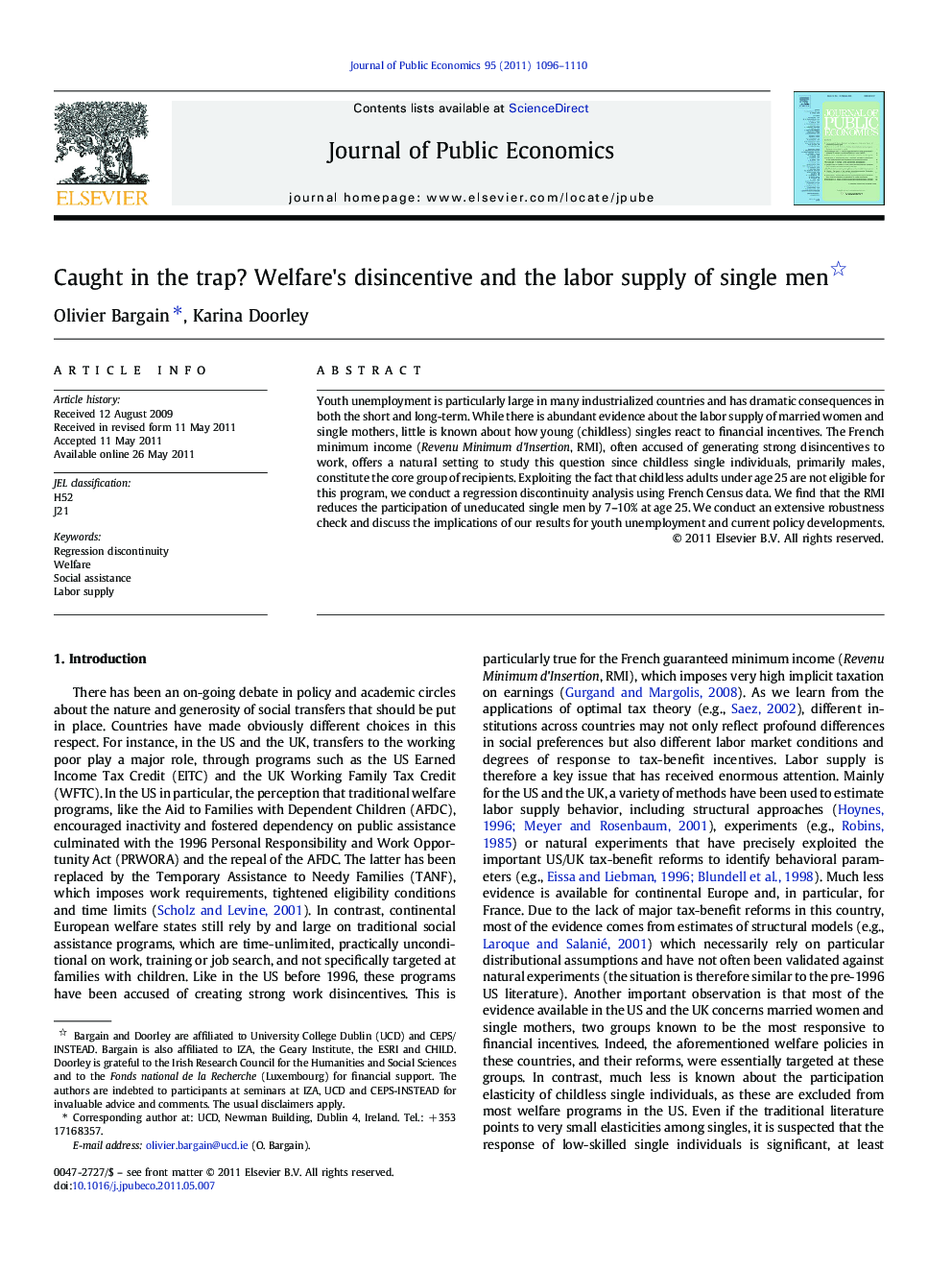| Article ID | Journal | Published Year | Pages | File Type |
|---|---|---|---|---|
| 969296 | Journal of Public Economics | 2011 | 15 Pages |
Youth unemployment is particularly large in many industrialized countries and has dramatic consequences in both the short and long-term. While there is abundant evidence about the labor supply of married women and single mothers, little is known about how young (childless) singles react to financial incentives. The French minimum income (Revenu Minimum d'Insertion, RMI), often accused of generating strong disincentives to work, offers a natural setting to study this question since childless single individuals, primarily males, constitute the core group of recipients. Exploiting the fact that childless adults under age 25 are not eligible for this program, we conduct a regression discontinuity analysis using French Census data. We find that the RMI reduces the participation of uneducated single men by 7–10% at age 25. We conduct an extensive robustness check and discuss the implications of our results for youth unemployment and current policy developments.
Research Highlights► Childless adults under age 25 are not eligible for the French minimum income program. ► We use Census data to perform a regression discontinuity analysis around that age. ► We find a significant drop in the participation of uneducated childless single men. ► No effect is found for control groups or for higher-educated men. ► Important implications regarding youth unemployment and policy changes are derived.
